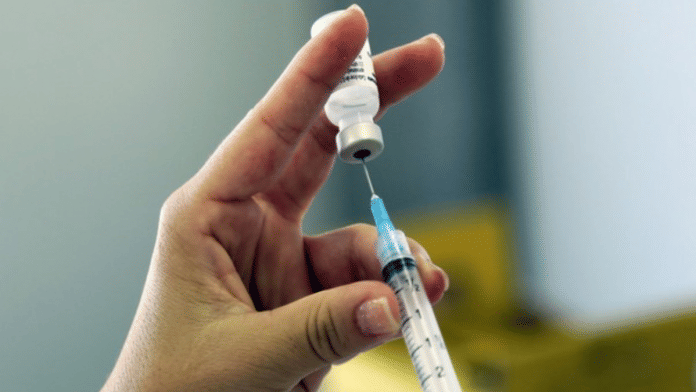
Thank you dear subscribers, we are overwhelmed with your response.
Your Turn is a unique section from ThePrint featuring points of view from its subscribers. If you are a subscriber, have a point of view, please send it to us. If not, do subscribe here: https://theprint.in/subscribe/
Covid is back. The whole world is witnessing a surge of positive cases. The situation in Asia is the worst. Globally, in the last seven days, i.e in the first week of May, 2023, a total of 438,577 new Covid positive cases have been recorded, with 2,162 deaths. During this period in India, 60,424 new cases and 179 deaths have been reported, while these numbers for Vietnam stand at 11,149 and 1; Singapore 26,072 and 0; Indonesia at 4,972 and 38; Nepal at 353 and 2, respectively.
World Needs Booster Shots
The countries are treating virus XBB.1.16, a highly transmissible strain of Omicron, which causes the present spread of the disease as endemic, because it is not causing widespread or severe illness. However, almost all the countries feel the need for another round of vaccination or a booster dose. The World Health Organisation’s (WHO) Strategic Advisory Group of Experts on Immunization (SAGE) also emphacised on additional booster doses to contain the spread of the disease.
As the countries ramp up their efforts to facilitate availability of adequate vaccines, therapeutics and diagnostics facilities for their citizens, it is high time global leaders looked back and learnt from the history of the Covid-19 vaccination.
Immunisation Inequality
The world witnessed hoarding of vaccines by high income countries and the greed of the multinational pharmaceutical companies even though they were aware that until people in all corners of the world were vaccinated, the virus would continue to rage. The inequality was obvious between the countries of global south and global north. The divide was also there within the low-and-middle-income countries. In the global south, comprising mainly the low-and-middle-income countries, the marginalised people were left behind.
WHO had a target to vaccinate 40% population in each country by end of December 2021 and 70% by mid-2022, according to the Asia Position Paper on COVID-19 Pandemic & Vaccine Inequality (APPCPVI), prepared by the Global Call to Action Against Poverty (GCAP), a network of 18,400 civil society organisations working together to end poverty and inequality. But, by September 2022, 53% people in high-income countries were vaccinated whereas only 1% was vaccinated in low-income countries. At the time when high income countries had already administered booster doses to 58.4% of their population, it was 48.3% in upper middle income countries and 1.4% in lower income countries, APPCPVI maintained.
Countries like Burundi started inoculation during October 2021, whereas, by May 2021, the United States had fully vaccinated half its adult population. At the same time, Canada had ordered enough vaccines that could vaccinate its population five times, similarly the United Kingdom 3.6 times, European Union 2.7 times, APPCPVI pointed out further.
Israel had depicted itself as one of the world’s most successful countries in organising a rapid vaccination campaign against Covid, but it was least concerned to ensure equitable access to vaccines in Israel-occupied Palestinian territory, said Amani Mustafa, a civil society activist from Palestine, during a global webinar on Covid-19 situation in February, 2022. Palestinian authorities struggled to secure vaccines from Covid-19 Vaccines Global Access (COVAX) programme and other donations. But, Israel’s blockade and closure of Gaza obstructed the entry of vaccines and other medical resources to Palestine, she lamented.
Within countries also, there has been a clear division in vaccination, testing and treatment. The current approach of health for all is challenging and expensive in low income Asian countries like Afghanistan, Bangladesh, Bhutan, Cambodia, East Timor, Laos, Myanmar, Nepal, and Yemen. Most of the donated vaccines are close to the expiry date and most are already expired.
Unfairness still exists
Even now, the global vaccine distribution remains highly unequal, with much of the current supply directed toward high-income countries.
The global figures by the first week of May, 2023, for persons fully vaccinated with last dose of primary series is 65.5% and persons boosted is 31.38%, whereas in India, they are 68.99% and 16.57%; 63.14% and 24.84% in Indonesia; 83.51% and 32.16% in Nepal; 84.87% and 40.95% in Bangladesh; 63.57% and 22.99% in Pakistan; 34.83% and 6.61% in occupied Palestinian territory, including east Jerusalem, respectively. On the other hand, the percentage of people boosted in developed countries like France, Germany, Brazil and Japan stands at 60.91%, 62.68%, 51.71% and 68.28%, respectively.
Factors behind Inequality
This inequality is due to stockpiling of vaccines by developed nations, ungenerous vaccine manufacturing countries, unsupportive international trade regimes and profit driven pharmaceutical companies.
Other factors include demographic structure, health and transportation infrastructure and development level.
Solution – Prioritize People over Profit
There is an urgent need to address the global inequity. Countries should move towards universal healthcare as promised under SDG-3. The WHO-promoted Pandemic Treaty should be adopted to tackle future crises.
People’s Vaccine, i.e. vaccine be declared a public good, and policies for free and universal vaccination, as demanded by GCAP and People’s Vaccine Alliance (PVA) should be adopted.
Political leadership should refrain from vaccine nationalism and work towards TRIPS waiver for vaccines, diagnostics and therapeutics.
These pieces are being published as they have been received – they have not been edited/fact-checked by ThePrint.


COMMENTS